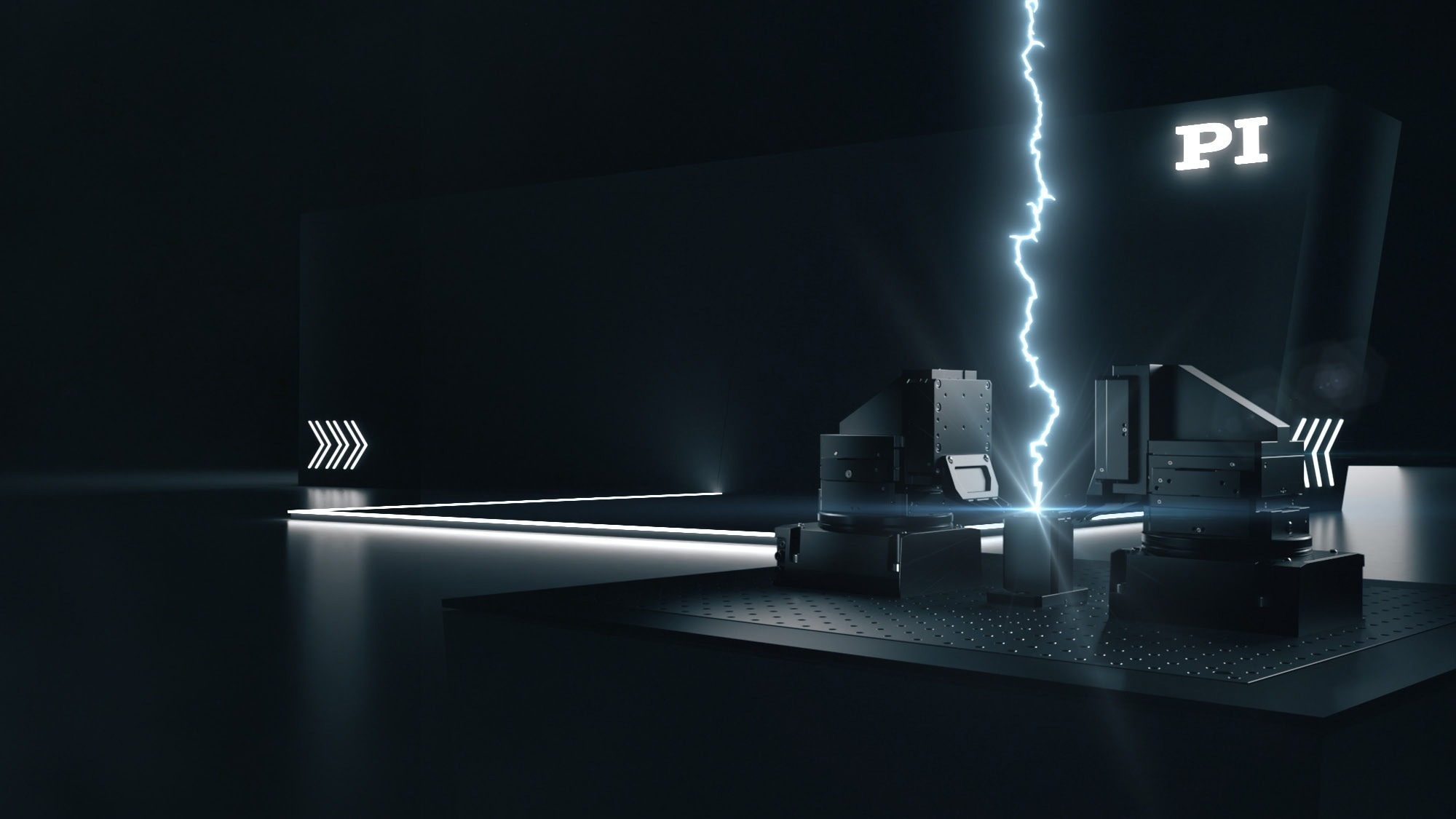To further its leadership in enabling the rapid manufacturing scaling of Photonics, Physik Instrumente (PI) introduces at this year’s Photonics West PILightningTM, the new first light search method with integrated AI-based real-time executive function.
 Solving the “First Light Problem” with the new algorithm PILightning™. Further information can be found on: https://pi-driving-innovation.com/en/pilightning. Image Credit: Physik Instrumente
Solving the “First Light Problem” with the new algorithm PILightning™. Further information can be found on: https://pi-driving-innovation.com/en/pilightning. Image Credit: Physik Instrumente
Replacing Fine Pitch Scanning by High Frequency Data Sampling
PILightningTM is based on a new search method with integrated AI-based real-time executive function. It also replaces fine pitch scanning by high frequency data sampling, raising acquisition speeds significantly. It drastically reduces the time required to acquire first-light in single- and double-sided couplings and in loopback (omega) waveguide configurations.
Tests have shown improvements of one order of magnitude and more in single-sided alignment applications. Even higher gains are achieved in double-sided first light detection applications. The larger the search area and the more complex the alignment, the more significant the gain.
The PILightningTM algorithm is immediately available on PI’s ultra-clean air bearing-based F-142 and F-143 multi-axis photonics alignment system as well as ACS-based Nanocube and steering-mirror controllers. Further modular expansion and potential upgrades to existing FMPA systems are being developed.
Fast Alignment and First Light Detection
Back in 2016, PI set the pace for the fast and precise alignment of optical components in 2016 with the Fast Multichannel Photonics Alignment (FMPA) technology. FMPA reduces the time and cost of manufacturing and testing of photonic devices and improves yield. But before the optimization process can even start, an optical signal, above the noise level, must be detected – a process called first light detection. Finding first light has been a costly, laborious procedure in all industrial photonics alignment applications, including wafer probing and device packaging, but it is particularly time-consuming in devices with inputs and outputs where both sides must be lined up for even a threshold amount of coupling to be achieved. With the PILightningTM algorithm, which will be presented for the first time at Photonics West 2024, PI has achieved a breakthrough in the form of a novel, built-in search-and-alignment algorithm, promising to once again revolutionize this field.